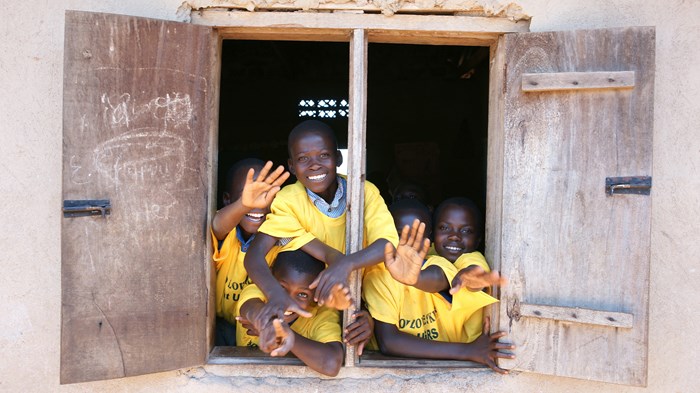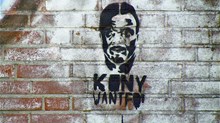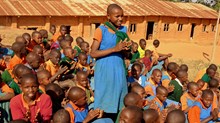We Should All Follow Uganda’s Lead in Refugee Hosting

*This is the second of a two-part series by Dennis Kilama, who survived more than two decades of violence by the Lord’s Resistance Army in Uganda.
Yesterday, Dennis wrote about his personal experience surviving, healing and now helping others heal from trauma. Today, he explains how to do so at a national level, using the country of Uganda as an example.
The children of Israel are reminded of how to treat the foreigner justly based on their experience in Egypt.
"Do not oppress a foreigner; you yourselves know how it feels to be foreigners because you were foreigners in Egypt." (Exodus 23:9, NIV).
The Israelites knew how It felt to be a foreigner and this experience was to shape their response to the foreigner in their land. I write as an Acholi from northern Uganda. For decades, the Acholi were forced to live in Internally displaced people’s camps as they fled from the LRA rebels. The Acholi know how it feels to be in war and be traumatized. Now, the Acholi have welcomed the refugees from South Sudan, partly because they know how it feels to be a stranger in a foreign land.
According to the UNCHR, 889,054 South Sudanese refugees live in Uganda alone. These refugees are in northern Uganda, a region that suffered the wrath of Joseph Kony's Lord's Resistance Army for 22 years. A community that recovered from decades of trauma is now helping South Sudanese that is currently suffering from war.
A community that recovered from decades of trauma is now helping South Sudanese that is currently suffering from war.
During the Joseph Kony war, the Acholi people were severely traumatized. The trauma in my community manifested in the form of depression and sadness, numbness towards gun violence, constant thoughts about the terrible events as expressed in music, mental illness in the community, increased suicide, alcoholism, domestic violence mainly affecting women and children, and homicides, among other things. This was the situation in northern Uganda for over two decades.
Today, South Sudan is the youngest country in the world to have such prolonged conflict. This conflict has forced the people to flee their homes into northern Uganda. This prolonged war causes much trauma. The effects of the prolonged civil war in South Sudan have left people emotionally wounded, in need of healing. According to UNHCR, the number of suicides and suicide attempts among South Sudanese refugees has more than doubled in 2019 compared to the previous year. There were 97 suicide attempts, with 19 deaths. The key factors contributing to a high rate of suicide include traumatic events both before and after fleeing South Sudan, extreme poverty, and lack of meaningful access to education and jobs. South Sudan needs help.
Uganda, a country that has previously experienced decades of war, has helped to host South Sudanese refugees. Uganda stands out in this area, hosting more displaced people than any other country in Africa. Like the Old Testament nation of Israel, Uganda knows how it feels to be a foreigner.
Humanitarian experts applaud Uganda’s open-door refugee policy as the most generous in the world. The government’s strategy integrates refugee issues into its national planning framework. Uganda's refugee policy guarantees freedom of movement and the right to employment, education, and health, as well as the right to start a business. The government also provides refugees with plots of land so they can farm and construct shelters. It empowers refugees to become economically self-reliant while granting them the same rights that citizens enjoy.
The command in Exodus 23:9 and Exodus 22: 21 is given while Israel was still in transition, not while they were living in the promised land. Uganda hosts refugees not because it has ‘arrived,’ but because it continues a journey of recovery by the grace of God. It is important to recover from trauma and the effects of war. As the community recovers it is better placed to help others that are suffering. The journey towards the healing of the Acholi people has enabled them to express kindness and compassion to people fleeing the violence in South Sudan.
Scars from past painful experiences can be a tool that can be used to help others with wounds from trauma.
Resources:
Hill et al, Healing the Wounds of Trauma, 2004, p.24
UNCHR, Suicide Raise Among South Sudanese Refugees
UN, Uganda stands out in refugee hosting
Dennis Kilama holds degrees from Africa International University, Nairobi Evangelical School of Theology and Makerere University. He will graduate in 2021 with a M.A. in Humanitarian Disaster Leadership from Wheaton College. He currently pastors Lugogo Baptist Church and teaches at Africa Renewal University, both located in Kampala, Uganda.
The Better Samaritan is a part of CT's
Blog Forum. Support the work of CT.
Subscribe and get one year free.
The views of the blogger do not necessarily reflect those of Christianity Today.






















